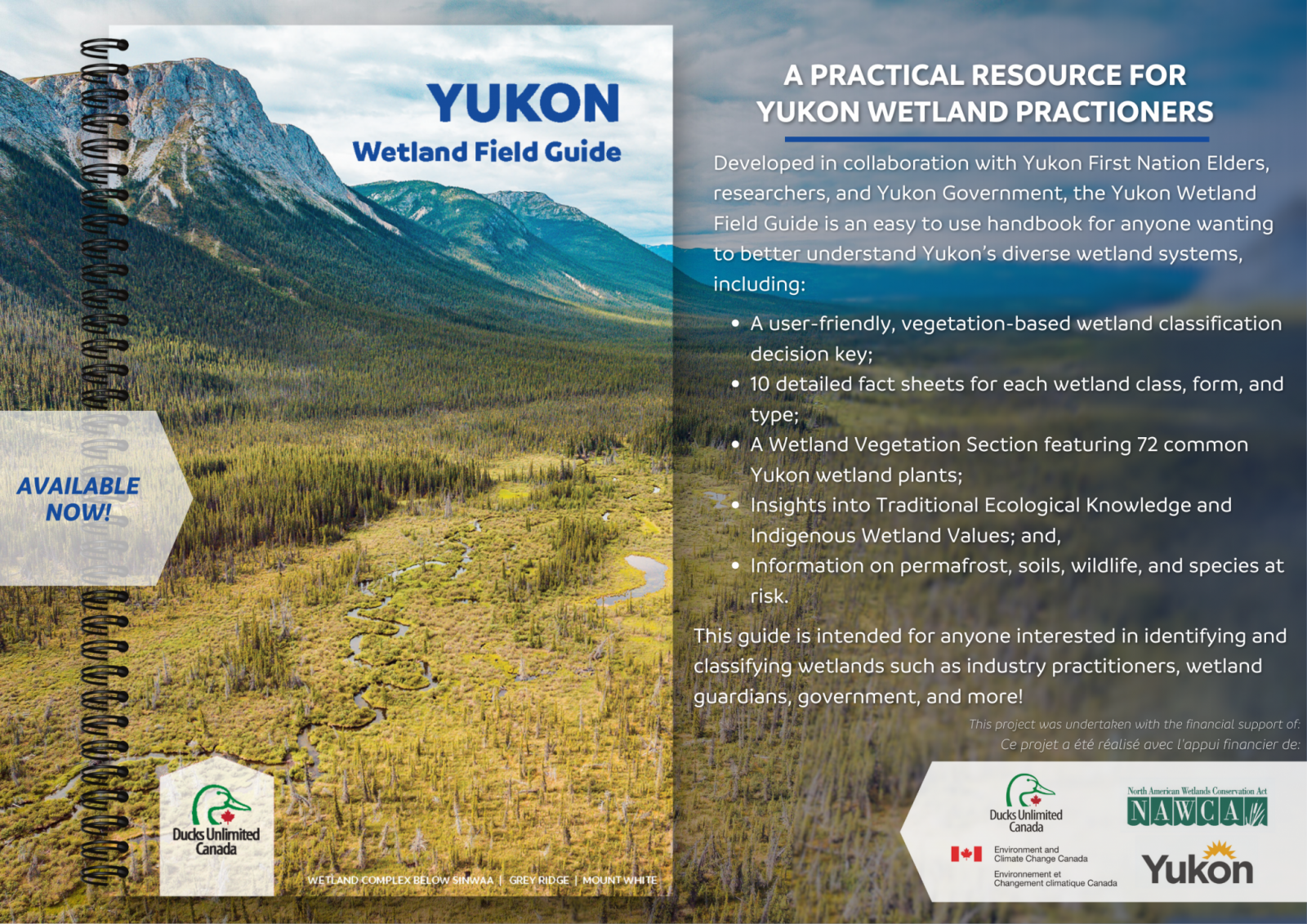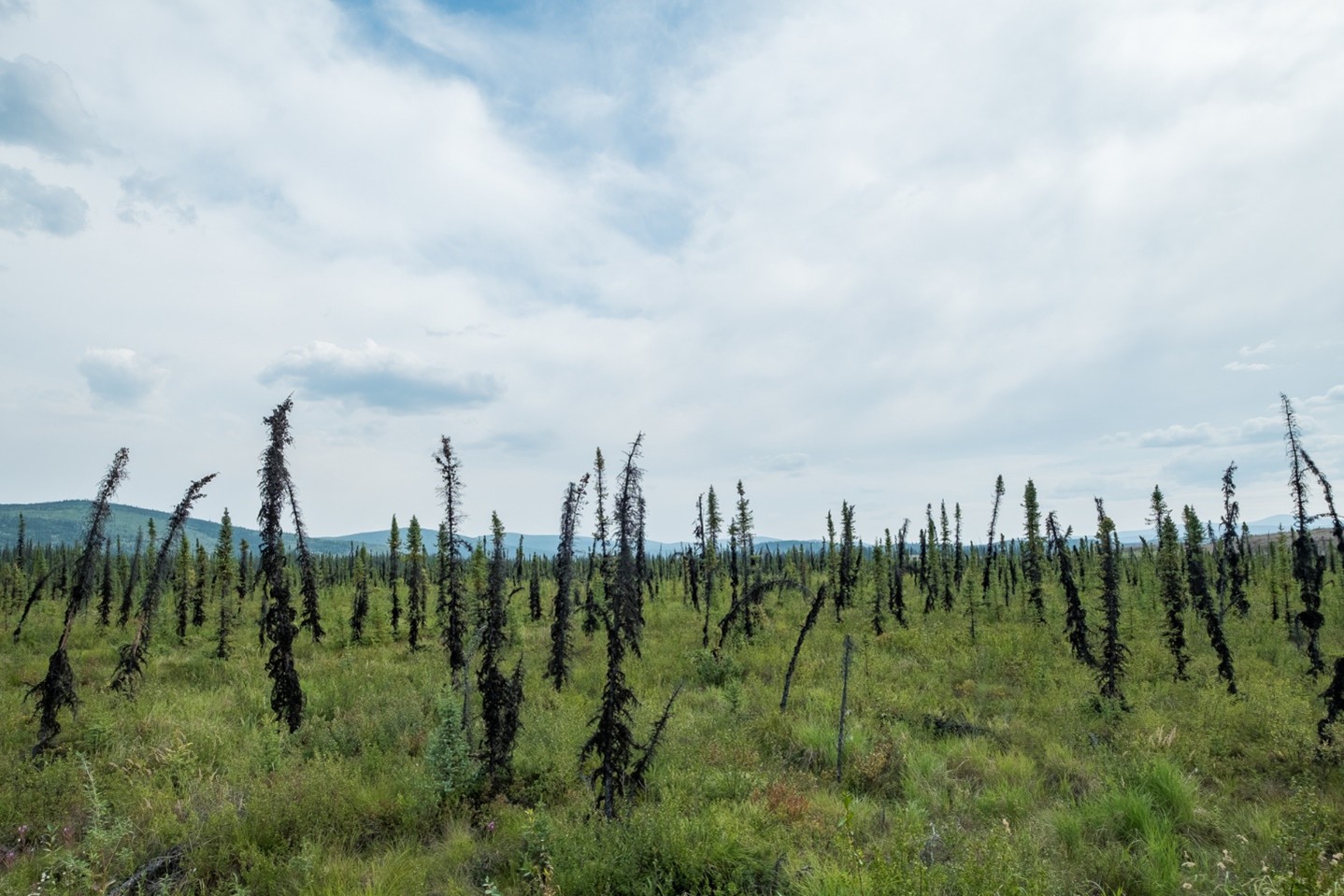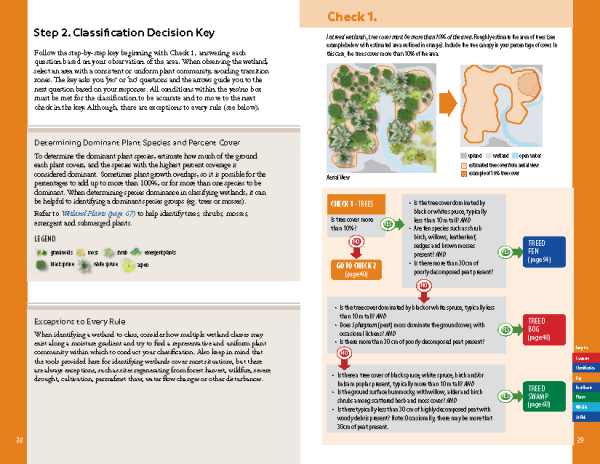Ducks Unlimited Canada
National Boreal Program
10525 170 St NW Suite 300
Edmonton, Alberta, Canada
T5P 4W2

Ducks Unlimited Canada
National Boreal Program
10525 170 St NW Suite 300
Edmonton, Alberta, Canada
T5P 4W2


This project was undertaken with the financial support of:
Ce projet a été réalisé avec l’appui financier de:

The Yukon Wetland Field Guide is a comprehensive, visual resource that introduces users to the diverse wetlands of Yukon and their significance to both the landscape and Indigenous communities. This guide provides practical guidance to identify wetlands based on observable characteristics such as vegetation, soil characteristics, land forms and more. Intended for anyone interested in wetland identification or who work in these ecosystems, this guide provides a quick reference tool when in the field. By aiding in the classification of wetlands, it fosters an understanding of their cultural importance, processes, and functions.
Developed in collaboration with Elders, researchers, and Yukon Government, this plain-language document integrates Traditional Ecological Knowledge, incorporating insights into wetland use, Indigenous Laws and Principles dictating respect for wetlands, and the Indigenous names of plants and animals. By braiding Indigenous Traditional Ecological Knowledge with scientific understanding, the guide aims to educate and foster stewardship among individuals, emphasizing the vital role of wetlands to people and the environment.
Developed in collaboration with elders, researchers, and Yukon Government, the Yukon Wetland Field Guide is an easy-to-use handbook for anyone wanting to better understand Yukon’s diverse wetland systems, including:
The guide is intended for anyone interested in identifying and classifying wetlands in Yukon, from industry and government practitioners to landowners, Indigenous communities and more. With images, illustrations, and diagrams of wetlands and common wetland plant species, that users will be able to approach wetland classification with ease.


To aid in wetland classification, detailed descriptions and photographs of wetland soils, hydrological characteristics, ground formations, and vegetation communities are provided.

After an introduction to wetland identification and classification concepts, users can navigate their way through a classification decision key of yes/no questions focused on the vegetation, soil, and water characteristics of their wetland of interest.

The guide features a dedicated section on common wetland plants, designed to assist in identifying wetland species. Within this section, you’ll find identification tips, photographs of the plants showcasing the plants at various life stages, and the types of wetlands the plant can typically be found.
Watch our kick-off webinar to learn more about the project.
Watch the kick-off webinar here